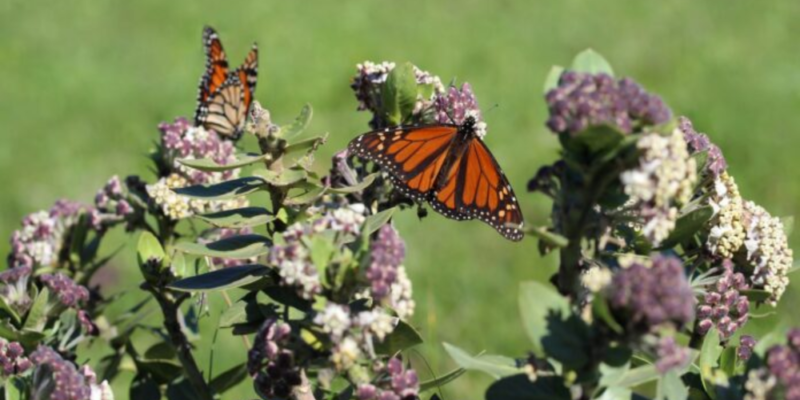
Rain Gardens Reduce Pollution, Beautify Yards
Rain gardens are a cost-effective best management practice and a beautiful addition to landscaping that reduces runoff from or flooding in your yard regardless of where you live, Shane Smith, a technical educator with the Mahoning County Soil & Water District writes in a recent column in the Farm & Dairy newspaper.
“As the population grows, natural areas are replaced with buildings, roads and other impermeable surfaces. When this happens, rain and snowmelt can no longer soak into the ground, which increases runoff that can carry fertilizers, pesticides, sediment, automotive fluids, yard waste and other pollutants into streams, wetlands and lakes,” Smith writes.
“A rain garden is a constructed depression in the landscape that collects stormwater from a roof, driveway or other impermeable surfaces. It is designed to temporarily hold and allow stormwater to be absorbed, which helps replenish ground water, reduce local flooding and filter out pollutants that would end up in streams, wetlands and lakes.”
